AVL To Accelerate The Vision Of Smart And Connected Mobility: Urs Gerspach
- By Sharad P Matade
- June 22, 2021
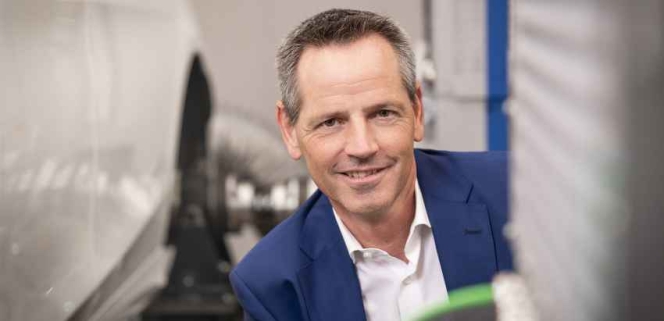
AVL is the world’s largest independent company for development, simulation and testing in the automotive industry and in other sectors. As a global technology leader, AVL provides concepts, solutions and methodologies in the fields of e-mobility ADAS and autonomous driving, vehicle integration, digitalisation, virtualisation, big data and much more.
In an interview with Sharad P Matade, Urs Gerspach, Executive Vice President of Test Systems and Global Operations, Instrumentation and Test Systems at AVL, shares his thoughts on the growth enablers and the company’s capabilities to cater to a wide range of demand in the automotive testing business.
 What is the impact of the Covid pandemic on AVL’s testing business?
What is the impact of the Covid pandemic on AVL’s testing business?
There is an impact, no doubt about it. The effect was much stronger last year; the customers constantly postponed their decisions about the orders of lab projects. However, this year, we are seeing a sudden improvement in the situation. In the first quarter of this year, we received massive orders of over 180 test systems for battery test labs. The situation is improving very fast, and the investments are being released by the OEMs. Until last year, the trends were not clear. Now we see a fast and strong growth of the passenger car industry towards electrification business. We are also witnessing the growing focus on fuel cells in the commercial truck segment. AVL is very well on track regarding its turnover and our margins for this year.
What is the reason for the increased demand of battery test labs?
In the past, many OEMs bought their battery cells from cell manufacturers like Panasonic, LG, CATL etc. and used these third party cells to build their own batteries. Several passenger car OEMs changed their strategy and decided to develop their own battery cells. Increased range, reduced charging time and lower costs are important key factors to convince customers to buy electric cars. Not just the development of the battery, but the combination of Battery, Inverter, E-Motor and Charging Infrastructure is important to develop a successful electric car. For this development, you need new test equipment such as battery cell cyclers, conditioning systems, climate chambers, automation and lab management software. The entire car is tested on High Voltage Powertrain Test Beds and Chassis Dynos where AVL has been the market leader for many years.
 Europe is gearing up for Euro-7. What is it? How will it influence the testing business?
Europe is gearing up for Euro-7. What is it? How will it influence the testing business?
EU-7 will set stricter limits for CO2 and particle emissions. We expect PM10 (particulate matter with a size of 10 μm) will be introduced for Euro-7 and we have therefore developed measurement systems which can measure PM10.
It is also important to measure the CO2 emissions of combustion engines as precisely as possible. It is not just about compliance with environmental standards, but also about fuel consumption. We also deliver Portable Emission Measurement (PEM) systems for measuring emissions in real-time conditions on the street. While driving the car under real conditions, you might not execute a certified test run under predefined environmental conditions, therefore, other emissions will occur that need to be measured and analysed. AVL offers a wide range of in-vehicle measurement systems and software to determine what is actually coming out of the exhaust - in real driving conditions.
But there will also be a focus on non-exhaust emissions, particularly brake dust. Electric vehicles don’t emit exhaust emissions, but there is still brake and tyre dust. We have developed entire test systems to test real brakes under real-time conditions.
What would be the significant growth drivers in the traditional combustion engine business for AVL testing divisions?
As mentioned, the Euro-7 regulation will be one of the main drivers for AVL in the future. Besides all the other technologies like ADAS, every engine will be partly electrified either as a pure Hybrid, Plug In- or mild Hybrid. The technology of an Integrated Combustion Engine (ICE) can also be used to run with pure hydrogen. AVL is developing several engines for various customers that convert existing ICE technologies in new concepts.
We are also working on measurement technologies for synthetic fuel. AVL is working closely with Formula One teams as they will soon run their engines with synthetic fuels.
AVL has played a significant role in the development of the diesel engine in Europe. However, many OEMs are talking about discontinuing diesel engine vehicles in the near future. Do you see this as a challenge?
This trend will not have a great impact on our testing division. It will have a larger influence on the powertrain development division for diesel engines. If you take a look at the share of electrified cars in Europe - especially in Germany - they only account for 10 percent of the total vehicles; the remaining share of cars are still powered by combustion engines.
The combustion engine will still remain relevant for a while. However, increasingly in the form of a hybrid powertrain. AVL is therefore converting existing test beds for the car manufacturers so that they can be used to test hybrid vehicles. There are several customers who request pure electrical test benches. Some of our customers come to us with the requirement to completely convert existing combustion engine test fields to electrification test systems.
 Between electric vehicles and hybrid vehicles, which one holds more promise in India in the near term and the long term?
Between electric vehicles and hybrid vehicles, which one holds more promise in India in the near term and the long term?
I believe, in countries where the electricity network is not yet fully developed, hybrid cars will provide more flexibility, combining the possibility to run with fuel for an overland trip and electrified within the city.
In India, two-wheelers might have a faster increase in electrification similar to the development in China. ICE engines might keep dominating for a while, especially for the commercial vehicle. The introduction of pure battery electric vehicles mainly depends on how fast India is able to provide the necessary high-voltage charging infrastructure.
What about the AVL Tech Centre in India?
Our Tech Centre in India is one of our strongest Competence Centre for turnkey projects. AVL India is a very strong and reliable partner when it comes to planning of entire test fields including plant facilities. In the field of Powertrain Development, our India Tech Centre focuses on all three technologies – ICE, electrification and hybridisation – equally in all segments. AVL is an engineering company assisting customers with all types of mobility technologies. We recently got one of the first orders for fuel cell test systems from an Indian customer. So there is something exciting happening in our Tech Centre in India.
 What about the revenues? How much does your testing division contribute to the whole company?
What about the revenues? How much does your testing division contribute to the whole company?
In 2020, the company generated a turnover of EUR 1.7 billion, of which 12 percent was invested in R&D activities. The testing division contributes with around 50 percent of the turnover.
What are the challenges in the business?
One of the biggest challenges is definitely to cover the growing bandwidth of technologies. A couple of years ago, we were only talking about ICE vehicles. Today, we are talking about ICE vehicles, hybrid vehicles, electric vehicles, batteries, ADAS and autonomous driving, digitalisation, cybersecurity and big data. AVL has built comprehensive competences to accelerate the vision of smart and connected mobility.
If you are an engineer, you have a wide range of technologies to specialise in. So one of the challenges is to find the right engineers to work on these different technologies.
What is the latest on safety by AVL?
One of the issues that is yet to gain the industry’s attention is fire safety in electric vehicles. AVL has been associated with fire marshals in Europe. Fire brigades realised an increase in accidents with Battery Electric Vehicles (BEV). Not only accidents but also burning BEVs in parking garages are a big challenge. These vehicles are very difficult to extinguish due to the chemistry of the lithium-ion battery.
AVL has developed a firefighting system which can extinguish a lithium-ion battery fire on the testbed or for fire brigade usage. It is a unique patented system that runs on liquids such as water or gases like nitrogen to extinguish battery fires. We conducted a couple of test series with hybrid batteries. A burning battery with 18 metres of flame height and temperatures of up to 1,500 degrees Celsius could be extinguished in one minute. (MT)
Motul Extends Partnership With Caterham, Becomes Title Sponsor For 2026 Championship
- By MT Bureau
- February 05, 2026
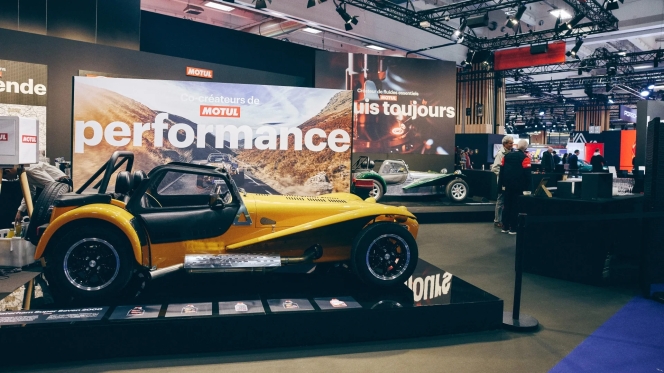
Caterham and Motul have solidified their ongoing collaboration with a new long-term agreement, blending Caterham’s focus on lightweight sports cars with Motul’s extensive expertise in advanced lubrication, honed over more than a century and a half. The alliance was celebrated publicly at Rétromobile 2026 in Paris, where a 2005 K-Series and a 2025 Super Seven 2000 were displayed on Motul’s stand. Under the renewed partnership, every new Caterham Seven produced at the company’s Dartford headquarters will leave the factory using Motul lubricants, spanning all models from the road-going 170 to each race car competing in the five Caterham Motorsport UK Championships.
Further deepening the relationship, Motul will take on the role of title sponsor for the Caterham Seven Championship UK in 2026, the brand’s premier national racing series. Known globally for its high-performance, motorsport-oriented fluid solutions, Motul brings decades of experience supporting automotive reliability and competitive success. Its technical innovation and research capabilities, proven through partnerships with major events like the 24 Hours of Le Mans and the Dakar Rally, ensure that its products meet the most demanding requirements, making Motul a natural and strategic partner for Caterham’s engineering and racing ambitions.
Ali McColl, Global Head of Marketing, Caterham, said, “This partnership is a significant milestone for Caterham, aligning our brand with a world-renowned leader in lubricants and fluid technology, reinforcing our commitment to performance across both our road and race cars. Motul brings a depth of experience in performance and efficiency that few other partners can offer. This agreement also marks an exciting new chapter for Caterham Motorsport. As we look ahead to the 2026 season, we are proud to unveil the Motul Caterham Seven Championship UK as the new name for the pinnacle of Caterham racing in the UK.”
Andreea Culcea, Chief Brand & Communication Officer, Motul, said, “We are proud to renew our partnership with Caterham, a brand renowned for its exceptional sports car expertise. Since 2019, our collaboration has been driven by shared values of performance, craft and precision. At Motul, we are developing tailor-made solutions designed to unlock the full potential of our partners’ machines. Working alongside a manufacturer like Caterham, where hand-crafted, limited-production cars are born from deep engineering know-how and passion, reflects our vision of authentic partnerships.”
- January 2026
- sales
- Hero MotoCorp
- TVS Motor Company
- Royal Enfield
- B Govindarajan
- Eicher Motors
- Mahindra & Mahindra
- Tata Motors Passenger Vehicles
- Hyundai Motor India
- Toyota Kirloskar Motor
- JSW MG Motor India
- Kia India
- Tarun Garg
- Nalinikanth Gollagunta
- Atul Sood
- Tata Motors Commercial Vehicles
Indian Automotive Sector Starts 2026 With Robust January Wholesales Growth
- By MT Bureau
- February 01, 2026

The Indian automotive industry has commenced the 2026 calendar year on a high note, with automakers across two-wheeler, passenger vehicle and commercial vehicle segments reporting significant YoY wholesale growth for January. The performance reflects a resilient domestic market and a burgeoning recovery in international exports.
The two-wheeler sector saw massive volume gains, spearheaded by Hero MotoCorp, which recorded dispatches of 557,871 units, marking a robust 26 percent growth compared to 442,873 units in January 2025. This performance marks the company’s 25th consecutive year of market leadership. TVS Motor Company followed with a 30 percent increase in domestic two-wheeler sales, reaching 383,262 units, while its electric vehicle (EV) wing grew by 50 percent to 37,756 units.
Royal Enfield achieved a significant milestone, surpassing 1 million year-to-date sales in just 10 months, posting January sales of 104,322 motorcycles – a 14 percent YoY increase, which includes 93,781 units in the domestic market and 10,541 units exported.
B. Govindarajan, Managing Director, Eicher Motors and CEO, Royal Enfield, said, "The new year has begun on a positive note for Royal Enfield – extending the strong momentum from the previous quarter and marking four consecutive months of healthy double-digit growth. We have crossed 1 million motorcycle sales in this financial year across the globe and also crossed 100,000 motorcycle sales in exports."
In the passenger vehicle (PV) segment, Mahindra & Mahindra reported a 25 percent growth in utility vehicles, selling 63,510 units domestically. Tata Motors Passenger Vehicles saw a dramatic 47.1 percent rise in total sales (including EVs) to 71,066 units.
Hyundai Motor India achieved its highest-ever monthly domestic sales of 59,107 units, up 9.5 percent, while Toyota Kirloskar Motor registered 30,630 units, representing a 17 percent YoY growth. Kia India also started the year strong with 27,603 units, a 10.3 percent increase and JSW MG Motor India grew 9 percent with 4,843 wholesale units.
Honda Cars India reported domestic wholesales of 6,193 units and 748 units in exports. These figures follow a January 2025 performance where the company registered 7,325 domestic units and 4,979 units in exports.
The current sales volume is supported by demand for the Honda Amaze, alongside steady contributions from the City and Elevate models.
Tarun Garg, MD & CEO, Hyundai Motor India, said, "January 2026 marks a defining chapter in Hyundai Motor India’s journey. Achieving our highest-ever monthly domestic sales of 59,107 units... reflects not only Hyundai’s brand leadership but also the collective strength of our people, partners and customers."
Nalinikanth Gollagunta, CEO, Automotive Division, Mahindra & Mahindra, said, "Building on the strong momentum of last year's performance, we began the year on a strong note in January... On 14th January, we opened bookings for XUV7XO and XEV 9S clocking 93,689 bookings for a booking value of INR 205 billion - a record-breaking milestone in just 4 hours."
Atul Sood, Senior Vice-President, Sales & Marketing, Kia India, said, "The encouraging start to 2026 reflects the continued trust customers place in the Kia brand. The positive response to the new-generation Seltos, steady demand for the Sonet, and growing popularity of the Carens Clavis and Clavis EV, underline the strength and balance of our portfolio."
Kunal Behl, Vice President, Marketing & Sales, Honda Cars India Ltd, said: “The year has begun on a strong note, supported by a healthy sales momentum. The Honda Amaze continues to bring in strong demand for its value for money offering along with the City and Elevate that contribute steadily to the overall business. We remain confident of sustaining this positive momentum in the coming months.”
The commercial vehicle (CV) sector also demonstrated strength, particularly in heavy and light cargo segments. Tata Motors reported total CV sales of 38,844 units, up 29.1 percent from 30,083 units in the previous year. Within this, Heavy Commercial Vehicle (HCV) trucks saw the sharpest rise at 41.2 percent. Mahindra’s domestic CV sales grew by 22 percent to 27,656 units, driven largely by the LCV 2T–3.5T category.
Union Budget 2026-27: Supply Chain Resilience, Infra Push To Drive Auto Industry Growth
- By MT Bureau
- February 01, 2026
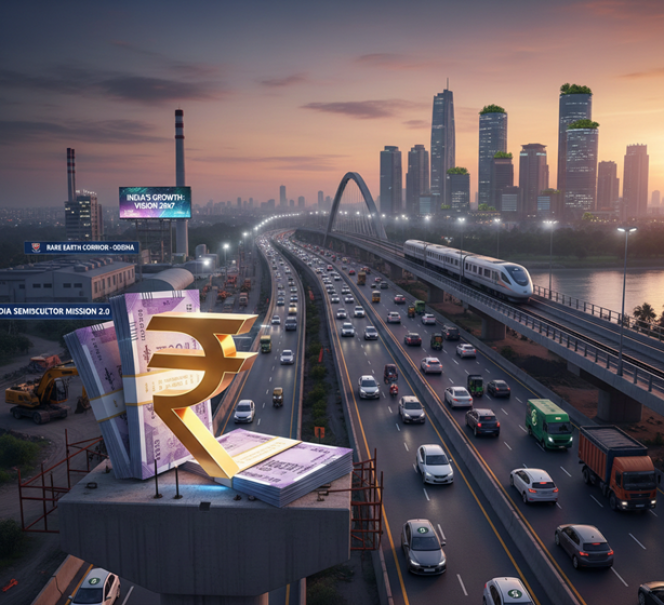
In a strategic pivot from direct consumer subsidies to foundational supply-chain resilience, the 2026-27 Union Budget, presented by Finance Minister Nirmala Sitharaman, focuses on bolstering the structural integrity of the Indian automobile industry.
A cornerstone of this year’s fiscal policy is the massive infrastructure and logistics push, highlighted by the development of the Dankuni-Surat Dedicated Freight Corridor and the operationalisation of 20 new national waterways. These initiatives, alongside a coastal cargo promotion scheme aiming to double the share of waterway freight to 12 percent by 2047, are designed to drastically lower logistics costs and ease the movement of components across the country.
Simultaneously, the government is reinforcing the industry's backbone by establishing a INR 100 billion SME Growth Fund to provide long-term capital for auto-component MSMEs, while enhancing liquidity through the Trade Receivables Discounting System (TReDS) and easing regulatory hurdles via ‘Corporate Mitras’ in Tier-II and Tier-III cities.
To secure the future of high-tech mobility, the Budget further expands the India Semiconductor Mission (ISM 2.0) to include domestic equipment manufacturing and chip IP, while nearly doubling the allocation for the Electronics Components Manufacturing Scheme to INR 400 billion. This technological drive is matched by a robust commitment to the electric vehicle (EV) ecosystem, specifically through the creation of ‘rare earth corridors’ in Odisha, Kerala, Andhra Pradesh and Tamil Nadu. These hubs will provide plug-and-play ecosystems to insulate the industry from global mineral volatility and supply curbs. Complementing this is a series of customs duty exemptions on capital goods used for lithium-ion cell manufacturing and critical mineral processing, which is expected to drive down battery costs and encourage local gigafactory expansion. Finally, for the clean energy segment, the full excise duty exemption on the biogas portion of blended CNG offers immediate relief to fuel prices, marking a comprehensive effort to foster a self-reliant, sustainable, and cost-competitive automotive landscape in the wake of previous GST reforms.
Motul Charts Future Of Mobility With Advanced Fluids At SIAT Expo 2026
- By MT Bureau
- January 31, 2026
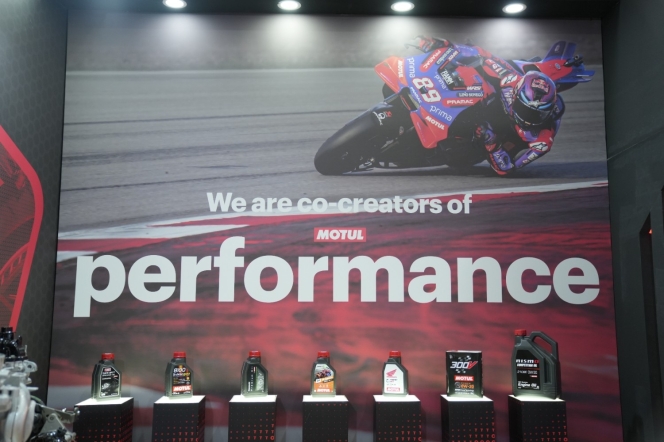
Motul India presented a comprehensive vision for the future of automotive fluids at SIAT Expo 2026, centred on innovation, sustainability and supporting the industry’s technological transition. The company’s exhibition was built around the event’s core theme of pioneering safe and sustainable mobility, demonstrating a strategic commitment to evolving alongside new vehicle architectures.
A cornerstone of this vision is the development of fluids for new propulsion systems. A keynote address by Dr Julien Plet, Global Head of R&D, elaborated on the critical role of innovative fluids for next-generation mobility. The company showcased its E-Gen series, engineered for the thermal management of electric vehicle components like motors, batteries and power electronics, positioning it as a critical solution for evolving electrified mobility. Simultaneously, for alternative fuels, Motul presented specialised lubricant formulations for hydrogen internal combustion engines, reflecting early and active research into diverse energy sources. This dual focus underscores a readiness to support the industry’s broad technological transition.
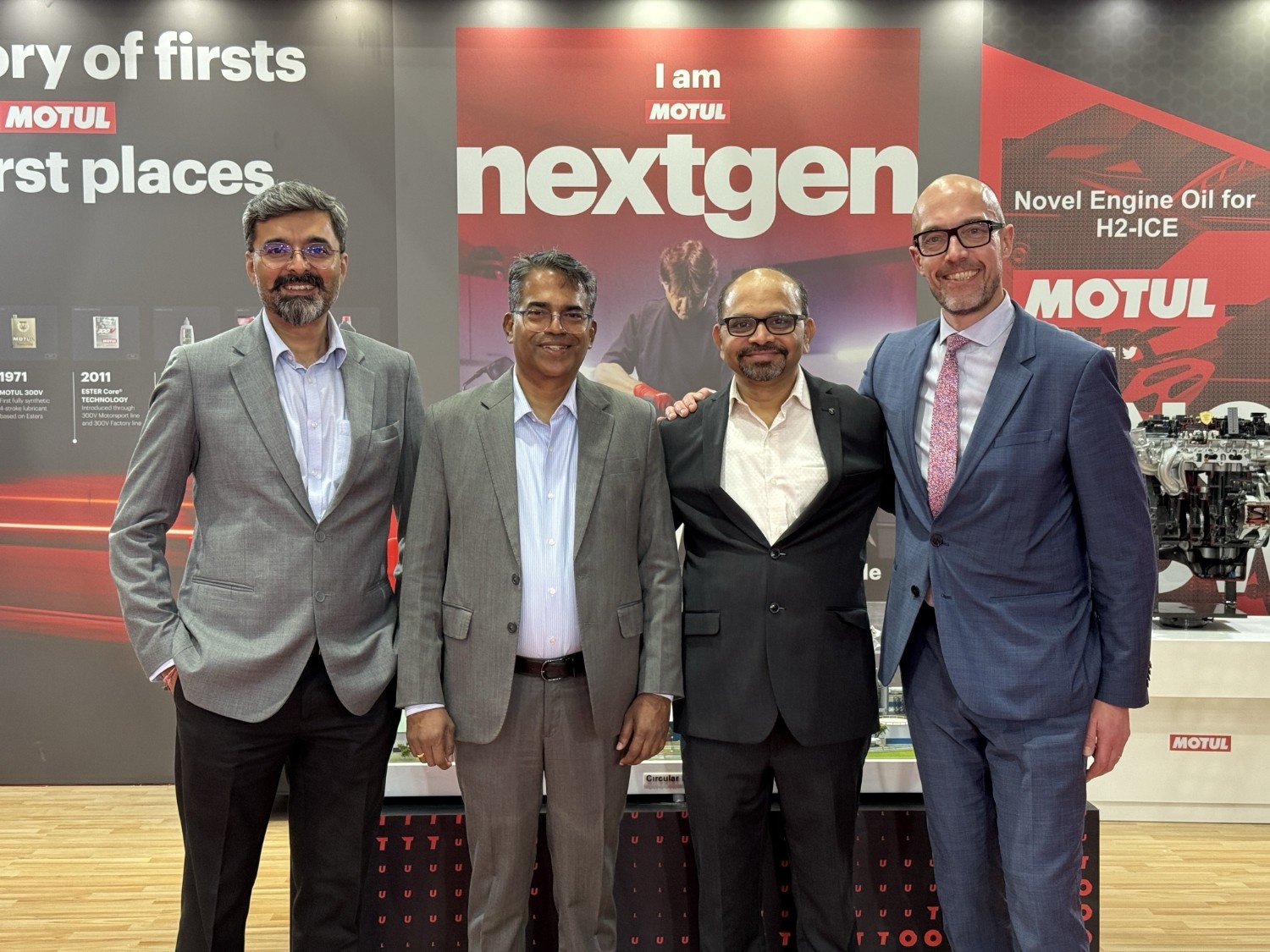
Further solidifying its technical credibility, Motul emphasised its race-to-road development philosophy. The exhibit featured OEM-validated products, including a lubricant with formal Mercedes-Benz approval and another born from collaboration with Toyota Racing Development. These examples illustrate how the company leverages the extreme demands of motorsport as a dynamic proving ground for future commercial technologies, rather than for immediate market launch.
Integral to its presentation was a strong sustainability narrative, exemplified by the NGEN lubricant range. This product line utilises base oils derived from re-refined materials, embodying circular economy principles and a long-term commitment to reducing environmental impact through responsible resource use.
Ultimately, by participating in the expo, Motul India reinforced its role as an innovation-led partner to the automotive ecosystem. With a robust global research backbone and deep industry relationships, the company showcased its structured approach to developing high-performance, sustainable fluids tailored to meet the specific demands of the Indian market as it advances.
Dr Plet said, “Motul’s research and development teams across geographies continue to focus on advancing lubricant performance for existing powertrains while developing technologies aligned with future mobility needs and local market conditions.”
Nagendra Pai, CEO, Motul India & South Asia, said, ‘’SIAT Expo is a key platform for future mobility, and Motul is proud to showcase its global innovation strength in India. By combining advanced technologies with local adaptability, Motul is ready to lead solutions across electrification, sustainability and alternative fuels.”







Comments (0)
ADD COMMENT